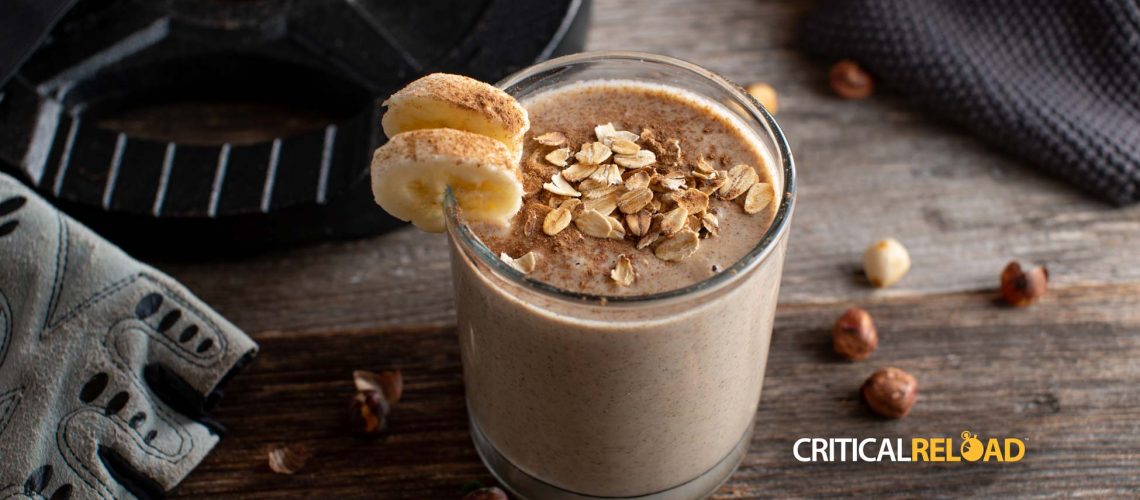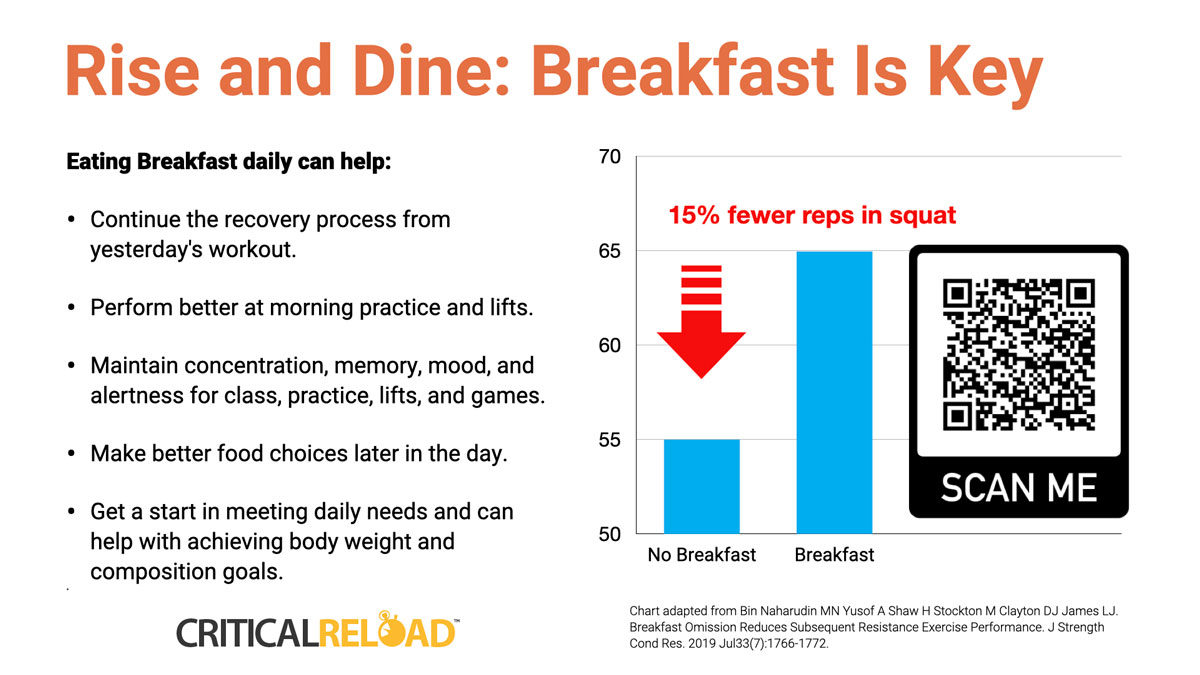Introduction
Hey there, young athletes, parents, and coaches! The age-old question, “Should you eat breakfast before or after a workout?” has been on many minds. A recent study has delved deep into this, and we’re here to break it down for you. Let’s dive in!
What was the study about?
The primary aim of the research was to understand the impact of what to eat before morning workout, particularly a carbohydrate-rich breakfast, on resistance exercise outcomes, such as weightlifting.
Who participated in the study?
Sixteen guys who regularly hit the gym and always eat their breakfast were chosen for this experiment.
What did they do in the study?
On different days, these guys were given two scenarios:
- Eat a typical breakfast (ate breakfast).
- Drink only water (no breakfast).
Macronutrient, Energy, and Water Intake During Each Trial:
- Breakfast Omission (BO)
Protein: 0g, Carbohydrate: 0g, Fat: 0g, Fiber: 0g, Energy: 0 kcal, Water: 17.38 fluid ounces (oz). - Breakfast Consumption (BC)
Protein: 14.7g, Carbohydrate: 116.3g, Fat: 8.4g, Fiber: 3.8g, Energy: 600 kcal, Water: 17.38 oz.
Two hours later, they did some weightlifting exercises, and the researchers checked how many repetitions they could do.
What did the study find?
The guys who skipped breakfast couldn’t do as many repetitions in their exercises as when they had breakfast. Also, when they missed breakfast, they felt hungrier and thought more about food.
So, what does this mean for me?
If you’re planning to hit the gym, especially for weightlifting, having a good breakfast might help you perform better. So, don’t skip that morning meal!
Frequently Asked Breakfast Questions:
- Why is breakfast important before exercising?
Breakfast provides the energy your muscles need to perform well. Think of it as fuel for your body! - What should I eat for breakfast if I’m planning to exercise?
A breakfast rich in carbohydrates is a good choice. Think of foods like oatmeal, whole grain toast, or a banana. - Is it bad if I exercise without eating breakfast?
You might not perform at your best and probably feel hungrier afterward. It’s always a good idea to fuel up before a workout. - I’m not a athlete/weightlifter. Does this still apply to me?
While this study focused on weightlifting, having energy from breakfast can benefit all types of exercises.
Coach & Parent Talking Points:
- Importance of Breakfast: Emphasize that breakfast is not just “another meal.” It is crucial in preparing the body for physical activities, especially resistance exercises like weightlifting.
- Carbohydrate Intake: Highlight the significance of carbohydrates as the primary energy source for muscles. A carbohydrate breakfast ensures the muscles are fueled and ready for optimal performance. The study recommends a pre-exercise breakfast meal containing 1.5 g of carbohydrate/kg body mass.
- Performance Impact
Discuss the study’s findings, where athletes who skipped breakfast performed fewer repetitions in resistance exercises. This can be a tangible example to showcase the direct impact of breakfast on performance. - Psychological Readiness
Beyond the physical benefits, a proper breakfast also prepares athletes mentally. Skipping breakfast can lead to heightened feelings of hunger and distractions, affecting focus and intensity during training. - Recommendations for Athletes
For training sessions, especially those in the morning when athletes exercise to their maximum capacity, it’s advisable to consume a high-carbohydrate meal beforehand. While the study focused on habitual breakfast consumers, the principle of a pre-exercise meal can benefit all athletes. - Future Considerations
Encourage athletes to explore and find the optimal amounts and timings of pre-exercise meals that work best for them. Individual preferences and body responses can vary, so finding a routine that maximizes performance is essential.
Conclusion
Breakfast is often called the most important meal of the day, and this study shows it might be especially true for those hitting the gym. So, the next time you ponder, “Should you eat breakfast before or after a workout?” remember the potential benefits of fueling up beforehand!
Reference
Bin Naharudin MN Yusof A Shaw H Stockton M Clayton DJ James LJ. Breakfast Omission Reduces Subsequent Resistance Exercise Performance. J Strength Cond Res. 2019 Jul33(7):1766-1772.

